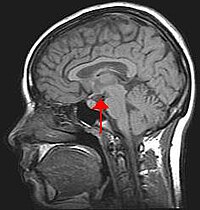
Characterization of giant neuroendocrine cells in the pregnant New Zealand white rabbit vagina demonstrated by histological, histochemical, and immunohistochemical methods
Sign Up to like & getrecommendations! Published in 2022 at "Microscopy Research and Technique"
DOI: 10.1002/jemt.24185
Abstract: The vagina is part of the genitalia and constitutes part of the birth canal. Sperm is deposited into vagina, and it acts in transport of sperm. Pregnancy is a complex process involving different physiological changes… read more here.
Keywords: rabbit vagina; neuroendocrine cells; pregnancy; giant neuroendocrine ... See more keywords

Pulmonary Neuroendocrine Cells: Sensors and Sentinels of the Lung.
Sign Up to like & getrecommendations! Published in 2018 at "Developmental cell"
DOI: 10.1016/j.devcel.2018.05.009
Abstract: Organisms have developed cellular "antennas" to sense, interpret, and integrate environmental stimuli. In a recent issue of Science, Sui et al. (2018) demonstrate that discrete clusters of pulmonary neuroendocrine cells in the lung can sense airborne… read more here.
Keywords: neuroendocrine cells; pulmonary neuroendocrine; cells sensors; sentinels lung ... See more keywords

Neuroendocrine Cells Take Your Breath Away.
Sign Up to like & getrecommendations! Published in 2018 at "Immunity"
DOI: 10.1016/j.immuni.2018.06.010
Abstract: Pulmonary neuroimmune networks have emerged as important regulators of lung homeostasis. In a recent issue of Science, Sui et al. show that strategically positioned pulmonary neuroendocrine cells amplify allergic airway responses via group 2 innate lymphoid… read more here.
Keywords: take breath; neuroendocrine cells; cells take; breath away ... See more keywords

Efficient Generation and Transcriptomic Profiling of Human iPSC-Derived Pulmonary Neuroendocrine Cells
Sign Up to like & getrecommendations! Published in 2020 at "iScience"
DOI: 10.1016/j.isci.2020.101083
Abstract: Summary Expansion of pulmonary neuroendocrine cells (PNECs) is a pathological feature of many human lung diseases. Human PNECs are inherently difficult to study due to their rarity ( read more here.
Keywords: neuroendocrine cells; efficient generation; pulmonary neuroendocrine; transcriptomic profiling ... See more keywords

Single Exosome Amperometric Measurements Reveal Encapsulation of Chemical Messengers for Intercellular Communication.
Sign Up to like & getrecommendations! Published in 2023 at "Journal of the American Chemical Society"
DOI: 10.1021/jacs.3c02844
Abstract: In multicellular organisms, cells typically communicate by sending and receiving chemical signals. Chemical messengers involved in the exocytosis of neuroendocrine cells or neurons are generally assumed to only originate from the fusing of intracellular large… read more here.
Keywords: neuroendocrine cells; communication; chemical messengers; chemical ... See more keywords

De-labelling severe asthma diagnosis: the challenge of DIPNECH
Sign Up to like & getrecommendations! Published in 2022 at "ERJ Open Research"
DOI: 10.1183/23120541.00485-2021
Abstract: Diffuse idiopathic pulmonary neuroendocrine cell hyperplasia (DIPNECH) is a rare pulmonary disease characterised by neuroendocrine cell hyperplasia within the bronchial epithelium [1]. The clinical presentation is characterised by nonspecific respiratory symptoms such as chronic cough,… read more here.
Keywords: neuroendocrine cells; dipnech; diagnosis; labelling severe ... See more keywords

Functional regulation of syntaxin-1: An underlying mechanism mediating exocytosis in neuroendocrine cells
Sign Up to like & getrecommendations! Published in 2023 at "Frontiers in Endocrinology"
DOI: 10.3389/fendo.2023.1096365
Abstract: The fusion of the secretory vesicle with the plasma membrane requires the assembly of soluble N-ethylmaleimide-sensitive factor attachment protein receptor (SNARE) protein complexes formed by synaptobrevin, syntaxin-1, and SNAP-25. Within the pathway leading to exocytosis,… read more here.
Keywords: neuroendocrine cells; fusion; exocytosis; syntaxin ... See more keywords

Co-Expression of Adaptor Protein FAM159B with Different Markers for Neuroendocrine Cells: An Immunocytochemical and Immunohistochemical Study
Sign Up to like & getrecommendations! Published in 2022 at "International Journal of Molecular Sciences"
DOI: 10.3390/ijms232113503
Abstract: Little is known about the adaptor protein FAM159B. Recently, FAM159B was shown to be particularly expressed in neuroendocrine cells and tissues, such as pancreatic islets and neuroendocrine cells of the bronchopulmonary and gastrointestinal tracts, as… read more here.
Keywords: neuroendocrine cells; adaptor protein; markers neuroendocrine; expression ... See more keywords

Drosophila TRPγ is required in neuroendocrine cells for post-ingestive food selection
Sign Up to like & getrecommendations! Published in 2022 at "eLife"
DOI: 10.7554/elife.56726
Abstract: The mechanism through which the brain senses the metabolic state, enabling an animal to regulate food consumption, and discriminate between nutritional and non-nutritional foods is a fundamental question. Flies choose the sweeter non-nutritive sugar, L-glucose,… read more here.
Keywords: neuroendocrine cells; food; drosophila trp; food selection ... See more keywords